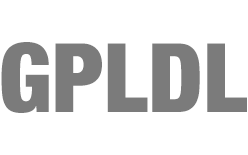In software development, open-source software stands as a beacon of collaboration and innovation. The GNU General Public License (GPL), a stalwart defender of this ethos, has recently been fortified by groundbreaking US court rulings. These developments not only validate the GPL's legal framework but also underscore its significance in promoting a more open and collaborative software environment.
The GPL: Championing Open Source
At its core, the GPL is more than just a license; it's a manifesto for software freedom. It ensures that software, and any derivative works, remain free and open, accessible for modification, and redistribution by anyone. This "copyleft" provision is the heart of the GPL, and it’s this aspect that has been robustly backed by the recent legal rulings in the US.
Recent Court Rulings: A Win for GPL
The 2017 and 2021 US court decisions mark a turning point, affirming that the GPL can be enforced as a contract. This legal recognition elevates the GPL from a set of guidelines to a binding agreement, empowering users and developers alike to demand compliance. It's a significant win for the open-source community, reinforcing the GPL's role in safeguarding software freedom.
Advantages for Open Source and GPL
- Enhanced Legal Authority: These rulings give teeth to the GPL, ensuring that the license's terms are not merely suggestions but legally enforceable conditions. This strengthens the position of open-source software in legal disputes.
- Promotion of Collaboration: By upholding the principles of the GPL, these decisions encourage more collaboration and sharing in the software development community. Open-source software thrives on communal contributions, and the GPL's enforcement ensures that these contributions remain accessible and free.
- Protection of User Freedoms: The GPL's primary goal is to protect users' freedom to use, study, modify, and distribute software. The recent legal backing further ensures that these freedoms are not just theoretical but practically enforceable.
- Prevention of Proprietary Lockdown: The GPL prevents companies from taking open-source code, modifying it, and then releasing it as proprietary software. This ruling solidifies this barrier, ensuring the continuance of software freedom.
- Encouragement of Innovation: With the GPL's terms being legally upheld, developers can innovate with the assurance that their contributions will remain part of the open-source world. This legal backing could lead to an increase in high-quality, open-source software developments.
Conclusion: The GPL's Bright Future
The recent US court rulings represent a significant victory for the GPL and the open-source movement at large. They validate the GPL's approach to software licensing and fortify its position as a pivotal tool in the open-source arsenal. As we move forward, these developments promise to nurture an environment where open-source software can continue to flourish, driven by the principles of freedom, collaboration, and innovation.
In this evolving landscape, the GPL stands not just as a license, but as a beacon guiding the path towards a more open and collaborative software future.
For more detailed information on the GNU General Public License have a look at Wikipedia's GNU General Public License page.






